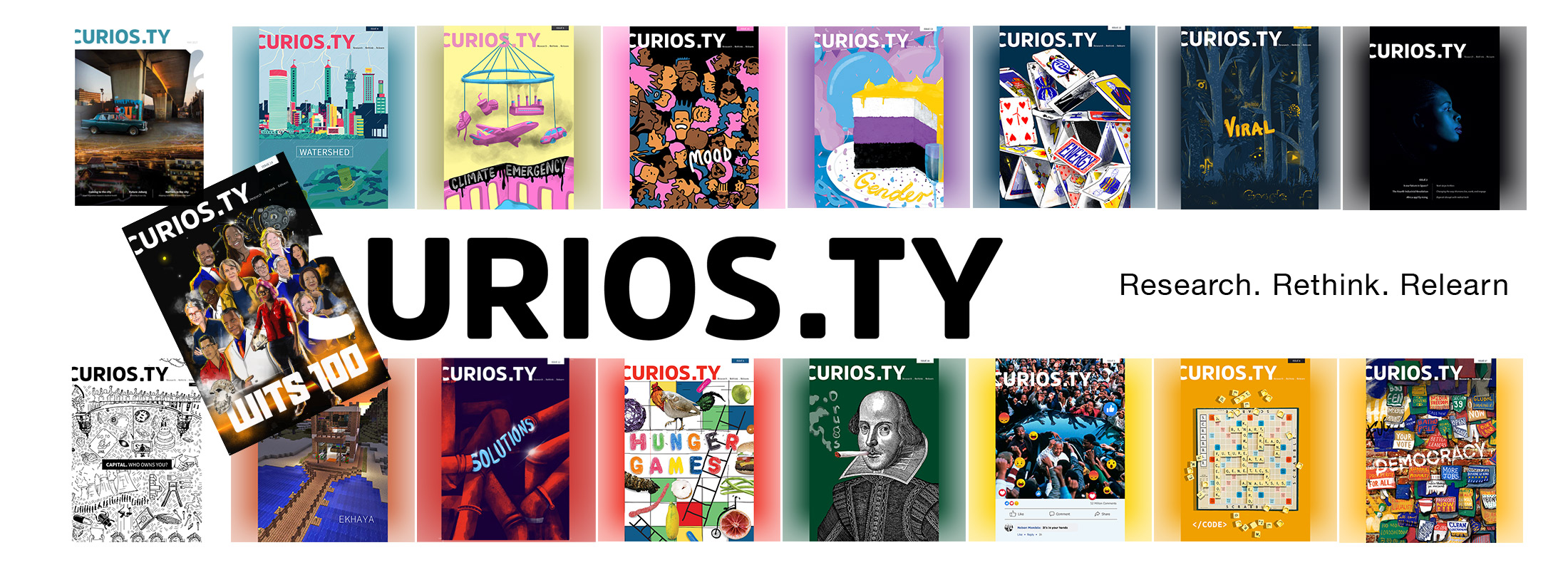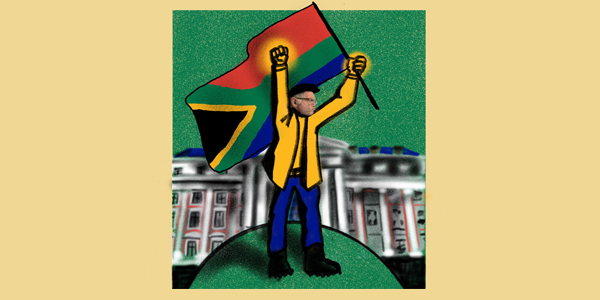
Ethical conundrums of the great dictator
- Schalk Mouton
[Column] As elected president for one day, I struggle with the same ethical question as those who have come before me: To plunder or to serve?

My fellow South Africans
Thank you for electing me, your humble servant, to lead you through the muddy waters of the future of our beautiful, beloved country. I deeply appreciate the trust that you have placed in me, and as is customary, gladly accept the office of the president – along with all the privileges, and none of the responsibilities that go along with it.
Please allow me some of your valuable time to inform you of my plans during my one day in charge. I sincerely hope, that during this time, I will achieve as much, if not more, than our 2015 weekend special Minister of Finance, Des van Rooyen, who spent a whole three days in office.
While there is plenty for me to look forward to during my 24 hours, I would be less than honest if I didn’t tell you that among the things I am most looking forward to include being driven in a blue light convoy at high speed, and spending time rubbing shoulders with the who’s who of the world in the winter wonderland of Davos (although as a politician, being less than honest is something that comes naturally to me).
Or, couched in a different way…
However, most highly anticipated is having international business people depositing large amounts of cash in hard currency in the folds of my couch, while my attention is diverted elsewhere. I believe I would derive as much joy from that, as I would from hosting peers that are wanted for international crimes against humanity.
What I can tell you, however, is one thing that I will not be doing, for as long as our police stations are not even connected to each other, our hospitals are falling apart, and our children are drowning in pit-toilets at school, is having fantasies of building new ‘smart cities’, connected with bullet trains. In my opinion, we should be outraged at the deplorable state of our infrastructure.
I am reminded of walking through the beautiful Company Gardens that run alongside the buildings of Parliament the other day when, looking up at this magnificent heritage building and seat of governance, I did so with a heavy heart. Instead of feeling pride, I felt sadness staring up at the derelict building, its windows broken and plasterwork peeling and collapsing.
It must be noted, though, that this damage was caused not by any malfeasance on the part of the previous regime but occurred, as we may all remember, after an act of arson in 2022. It now requires R2 billion to be restored to its former glory, money that we don’t have because it was spent on a firepool, somewhere in rural KwaZulu-Natal.
Contrast this situation with the near destruction of Notre Dame Cathedral in Paris in 2019, where a fire caused damage worth €767 million (over R15,3 billion). Within one day of an appeal for help by the French President Emmanuel Macron, a total of €846 million (about R16,9 billion) was raised through pledges from across the world.
Personal enrichment versus economic growth
I must admit, occupying the seat of the most powerful person in South Africa for a day, I am torn between the decision either to enrich myself and my comrades beyond belief, or, on the other hand, to do what’s right for the country and all its citizens – that is to ensure sustainable development through economic growth and to rebuild the infrastructure necessary for the achievement of our goals.
Naturally, like my predecessors, I lean toward the latter (former?) However, some of my advisors have very different ideas, and strangely enough believe that by improving the future for all South Africans, my esteemed colleagues and I will also stand to benefit.
I have been told that in order to change the future of the country for the better, Professor Alex Van den Heever of the Wits School of Governance says we need to do three things. Number one, we need to get rid of systemic corruption, number two, we need to get the country’s economy back on track and number three, we need to fix the social functions of the country, which would need work and input from points one and two.
An executive accountable to the public
In order to put a stop to systemic corruption, Van den Heever says that we need to change the legislative framework that regulates the relationship between the executive and all organs of state, so that they can be held accountable by the public, and not the state itself. Unless we do this, says Van den Heever, no policy could work.
To get the economy going, we need to prioritise areas of infrastructure investment, and get our roads, freight, ports and electricity transmission back in reasonable working order. This would not only result in a huge improvement in our employment figures, but we’d be able to capitalise on our massively abundant natural resources. By doing these two things, we can then finance our social responsibilities, such as crime prevention, education, social security and improved healthcare.
At the moment, Van den Heever says, we lose up to 40% of the financial resources that we have to corruption.
To be completely honest, I have always believed that every single problem in our great country could easily be fixed, if only there was the necessary political will to back it up. I still believe that. However, Van den Heever says that while this may be true, at the moment there is no real interest in serving the public. Effectively, the necessary political will is stymied by the systemic corruption.
There are so many gaps and multiple cabals in our political system, that even if the person right at the top wants to do the right thing, people in positions of power below are holding them back. Take as an example that not a single person has, up to now, been prosecuted from the findings of the Zondo Commission.
Political interference
The fact that South Africa’s public organisations afford political office bearers, i.e. the executive government, such powers of interference and involvement in their day-to-day running, allows for massive abuse of power. In addition, our political principals do not have to make decisions for the benefit of the country, but for their own personal benefit and perhaps even that of the political party they serve. A case in point is Minister Pravin Gordhan, who, due to a misinterpretation of the law, acts as the sole ‘owner’ of entities such as Eskom and South African Airways.
“No single person should be in a position where he or she alone could appoint a board of a state-owned entity,” says Van den Heever.
If, as my advisors urge me to do, if I were to fix the country and put it back on the path of economic growth and improved social wellbeing for all its people, there is just so much work to be done. It is possible, but we would need a completely new social compact and a new set of rules governing how we work in the future.
Various analysts have in recent years pointed out that the coming century is the “African Century” due to the continent’s youthful population and growth. Our richness in human capital (and our diversity, I would add) is what is going to make us world leaders in the next century.
But, as another advisor, Professor Craig Sheridan from the School of Geography, Archaeology and Environmental Studies points out, we need to educate our people.
“If I were president for a day,” he says (Ahem!) “I would borrow a trillion dollars, and properly fund education, so that all our youth can be educated to similar levels as those of Finland, and the rest would follow.” It will take time, acknowledges Sheridan, but the gains would be worth it.
Now, if all you great citizens of our beloved country will excuse me, I have to go and call my bank manager.
Yours honourably
Your humble servant, His Eminence, Commander in Chief, Supreme Leader and
President (for a day)
Schalk Mouton
- Schalk Mouton is a Senior Communications Officer at Wits University.
- This article first appeared in Curiosity, a research magazine produced by Wits Communications and the Research Office.
- Read more in the 17th issue, themed: #Democracy, we turn to our academics and professional staff for their research, perspectives and commentary on both the progress and shortcomings in our democracy, and democracies elsewhere.

